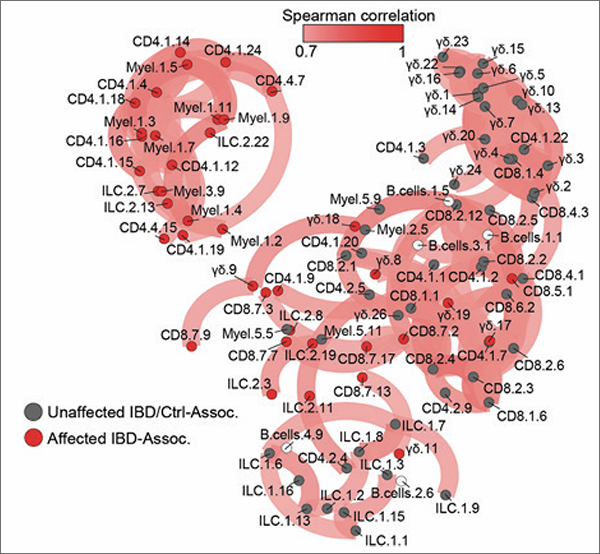"What was surprising was that patients with mild-to-moderate disease, who are typically treated with mesalamine compounds, had worse clinical outcomes," Dr. Kartikeya Tripathi of the University of Massachusetts Medical School in Springfield told Reuters Health by email. "We understand that COVID-19 infection causes an aggressive inflammatory response - the 'cytokine storm' - that is suppressed by anti-TNFs, hence favoring clinical outcomes."
"We have evidence that patients who are on maintenance therapy for their IBD must continue their treatment as scheduled to avoid loss of treatment response and/or loss of medication from the therapeutic armamentarium," he noted. "Patients on infliximab or adalimumab have the best clinical outcomes with COVID-19 in terms of hospitalizations and ICU admissions when compared with corticosteroids, (which) should alleviate any hesitation on the patient or prescribing physician's end."
For their systematic review and analysis published online October 27 in Inflammatory Bowel Diseases and presented at Digestive Disease Week in May, Dr. Tripathi and colleagues analyzed 23 studies with 51,643 IBD patients, including 1,449 with COVID-19.
In 14 studies that included 50,706 IBD patients with and without COVID-19, the prevalence of infection was 1.01%. Among those with COVID-19, 52.7% had Crohn's disease; 42.2%, ulcerative colitis; and 5.1%, indeterminate colitis.
Nine studies with 687 patients reported outcomes according to the IBD therapy received. As Dr. Tripathi noted, compared with patients on corticosteroids, those on anti-TNF therapy had a lower risk of hospitalization (risk ratio, 0.24) and ICU admission (RR, 0.10) but not death (RR, 0.16).
Further, compared with patients on mesalamine, those on anti-TNFs had a lower risk of hospitalizations (RR, 0.37) and ICU admissions (RR, 0.20), as well as death (0.21).
Outcomes were similar when comparing patients on immunomodulators versus mesalamine or anti-TNF therapy.
Summing up, the authors conclude, "The prevalence of COVID-19 in IBD patients was low. Use of corticosteroids or mesalamine was significantly associated with worse outcomes, whereas use of anti-TNFs was associated with more favorable outcomes. Further investigation clarifying the mechanisms of these disparate observations could help identify risk and adverse outcome-mitigating strategies for patients with IBD."
Dr. Tripathi added, "This study brings up multiple future questions. One, that we are looking into, is how robust or effective is the COVID-19 vaccine in mounting an immune response in this population? Should they have different dosing/regimens? Another question is if there is a way to appropriately use anti-TNFs in sicker intensive care unit patients with COVID-19 to decrease mortality? We don't know."
Dr. Matilda Hagan, Medical Co-Director at The Center for Inflammatory Bowel and Colorectal Diseases at Mercy Medical Center in Baltimore, commented in an email to Reuters Health, "In my experience, steroid use carries a more significant risk for adverse infectious outcomes. I have not observed mesalamine use to be associated with worse outcomes, (and) it is unclear why (it would be). A behavior component with risk perception may be at play."
"The results should be interpreted with caution," she said. "In addition to the potential confounders highlighted in the study - such as smoking, corticosteroid use, and medical practices - the role of disease activity or severity is not known."
"Understanding the factors that lead to severe disease beyond comorbid conditions would be helpful," she noted. "What determines if a cytokine storm will be mounted?"
"Adherence to therapy is very important to prevent disease complications," she added. "Elective discontinuation of therapy for fear of increased risk of COVID 19 may put patients at greater risk without significant benefit."
SOURCE: https://bit.ly/3c9kz8C Inflammatory Bowel Diseases, online October 27, 2021
By Marilynn Larkin
Posted on
Previous Article
« Five criteria could enable safe early discharge after laparoscopic colorectal surgery Next Article
Focus on Breast Cancer: Featured Interview »
« Five criteria could enable safe early discharge after laparoscopic colorectal surgery Next Article
Focus on Breast Cancer: Featured Interview »
Related Articles
June 14, 2022
Antibiotic use elevates IBD risks in senior citizens
October 23, 2019
Half of common medications wreak havoc on gut microbiome

May 9, 2019
Immune cells and microbes: a happy marriage?
© 2024 Medicom Medical Publishers. All rights reserved. Terms and Conditions | Privacy Policy

